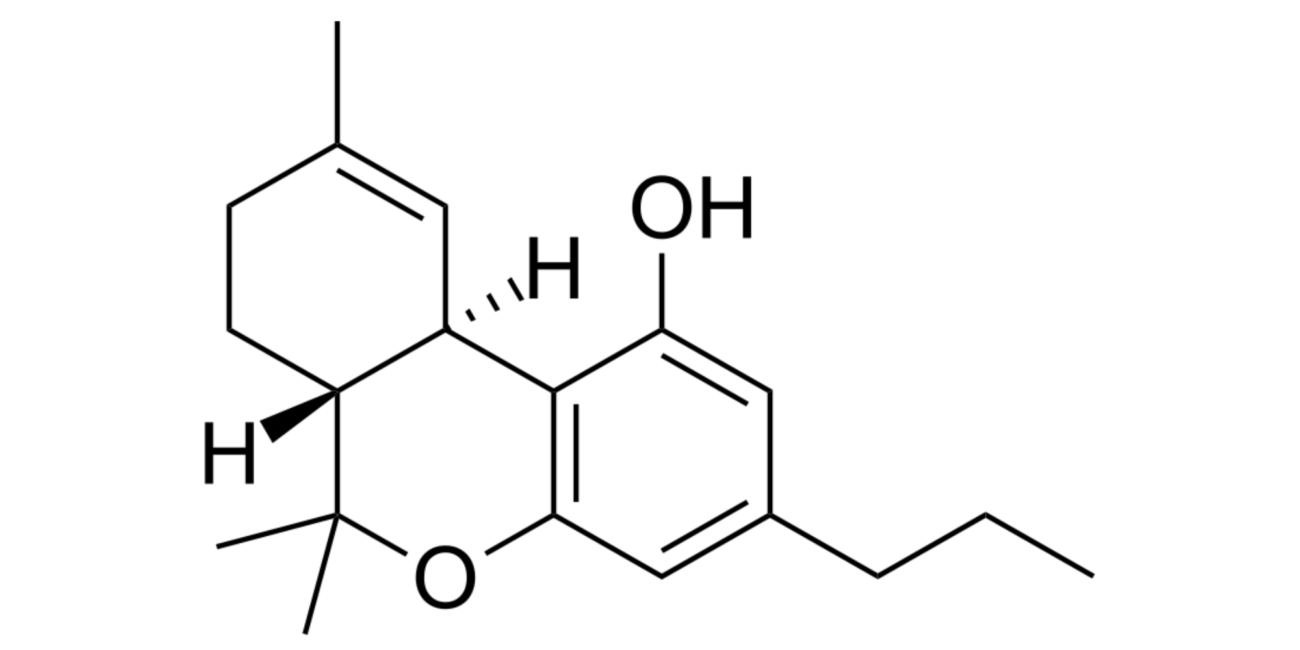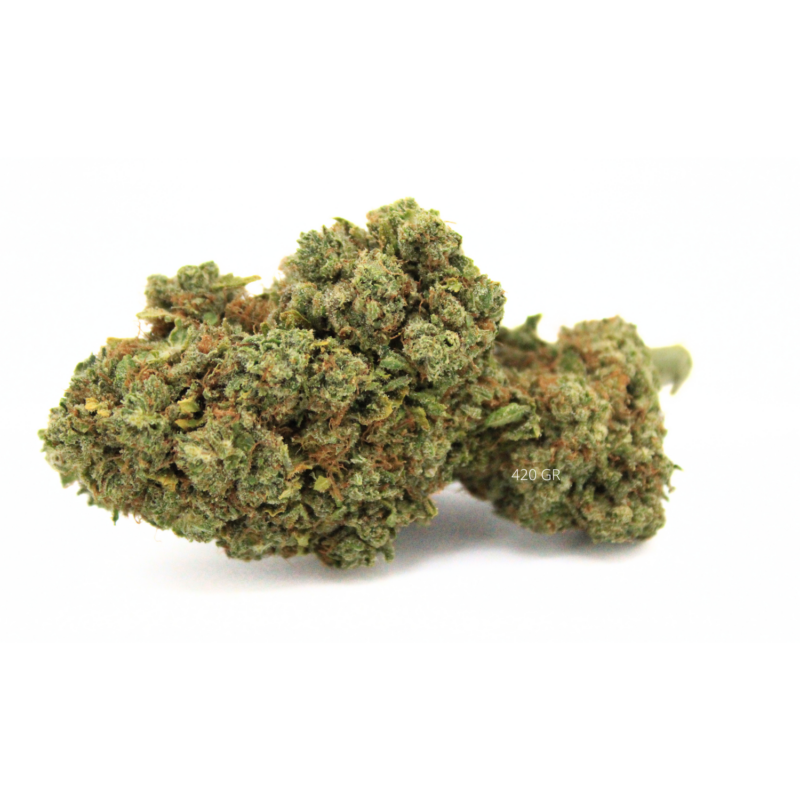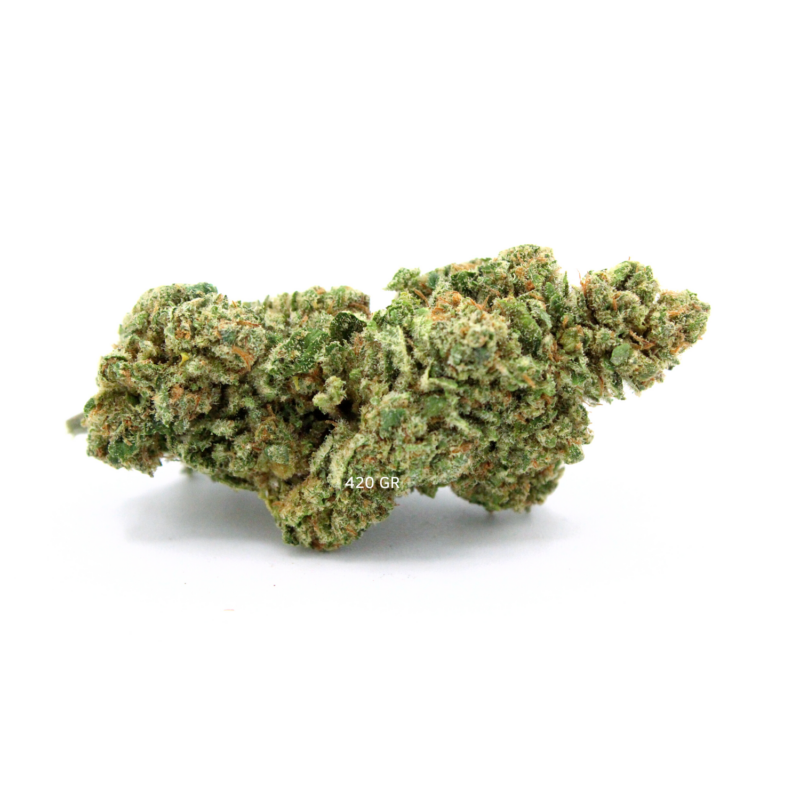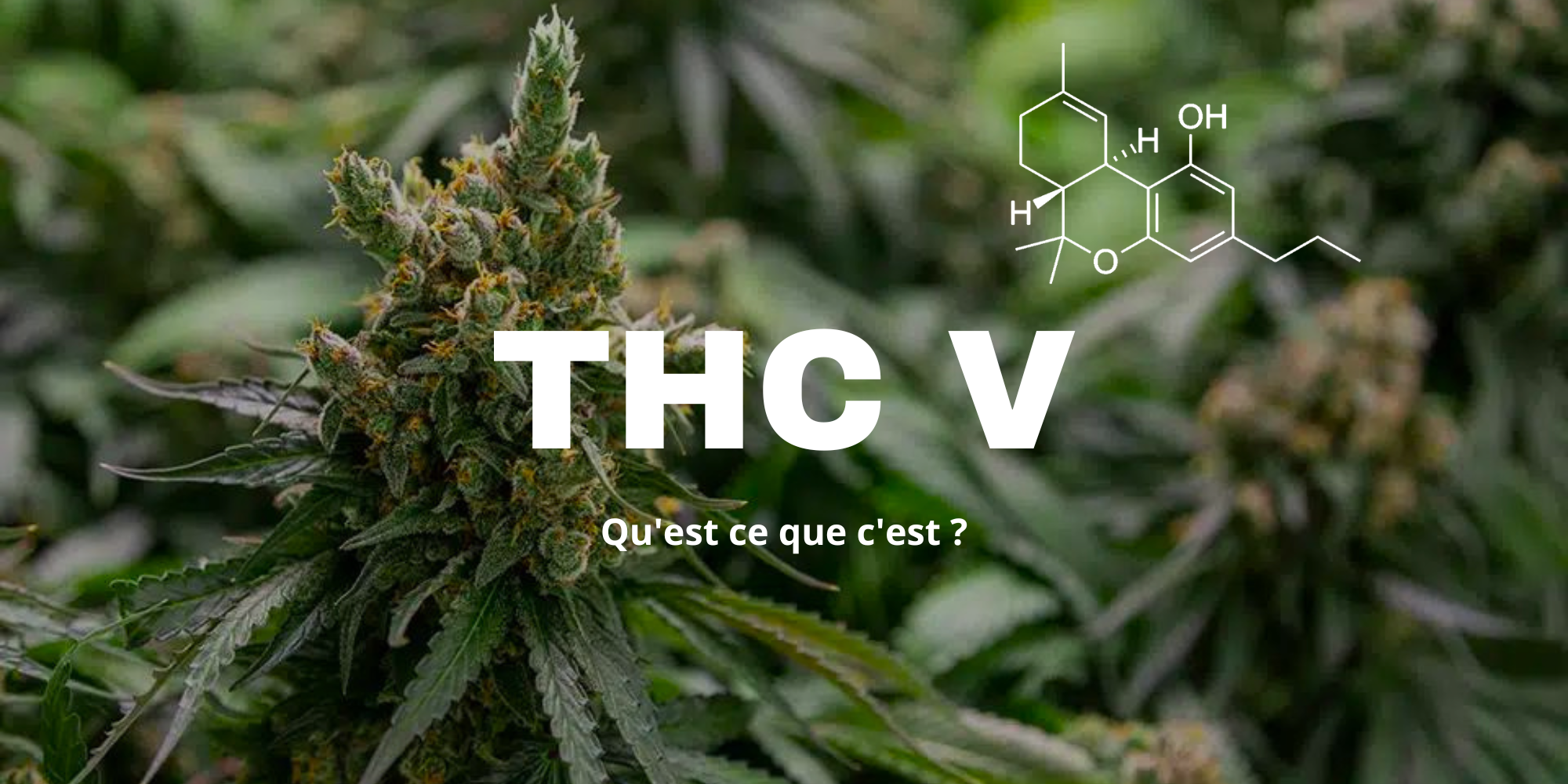THCV: A little-known but intriguing cannabinoid
Although cannabis is an ancient plant that has been used by man for millennia, it's only in recent decades that we've really begun to understand its biochemical complexity. One of the most interesting discoveries has been the existence of numerous cannabinoids, or chemical compounds, present in cannabis. Among them, THCV, or tetrahydrocannabivarin, is attracting increasing attention.
THCV is a cousin of tetrahydrocannabinol (THC), the most famous cannabinoid in cannabis, known for its psychoactive effects. However, THC-V has a slightly different chemical structure to THC, resulting in unique interactions with our endocannabinoid system, the network of cannabinoid receptors in our body.
Despite first being discovered in the 1970s, tetrahydrocannabivarin has remained in the shadows for far too long. This is partly due to its relatively low presence in most cannabis strains. Thanks to advances in cultivation and extraction techniques, as well as growing interest in minor cannabinoids, THCV is now more accessible for research and personal use.
What is the chemical structure of THCV?
Like all cannabinoids, THCV is produced in the cannabis plant from its acid form, THCV-A. During decarboxylation, a process that occurs when the plant is heated, THCV-A is converted to THCV.
The molecular structure of THC-V is similar to that of THC, with one key difference: THCV has a propyl side chain (three carbon atoms) rather than the pentyl side chain (five carbon atoms) found in THC. This modification may seem minor, but it has a major impact on the way THCV interacts with the receptors of our endocannabinoid system in the body.

What are the effects of THCV?
The endocannabinoid system is a network of receptors located throughout the body that interact with cannabinoids to regulate a variety of physiological functions. THC binds primarily to CB1 receptors, causing the familiar psychoactive effects of cannabis.
THCV is often described as a "neutral" cannabinoid, meaning that it does not possess the same psychotropic properties as THC, and by nature would not induce any form of euphoria when consumed. However, it's essential to qualify these statements. As mentioned earlier in this article, tetrahydrocannabivarin has a dual-phase action.
- Low concentration (-10%): THC-V acts as a CB1 and CB2 receptor antagonist, while retaining its own therapeutic properties, as listed below.
- High concentration (+10%): THCV is said to act as an agonist at CB1 and CB2 receptors, providing intense euphoric and relaxing sensations.
This complexity of action on the body, depending on dosage, can be an asset for consumers.
What are the therapeutic properties of THCV?
Appetite & Blood sugar
One of the most fascinating discoveries about THCV is its potential impact on appetite. Unlike THC, which is known to induce hunger, early studies suggest that THCV may actually reduce appetite, or at least promote the feeling of satiety. This could have important implications for people looking to lose weight or manage their calorie intake.
THC-V has also shown potential in regulating blood sugar levels. Preclinical studies suggest that it could help reduce insulin resistance and improve glucose tolerance, which could benefit people with type 2 diabetes.
Neuroprotective
In addition to its effects on appetite and blood sugar levels, THCV has also shown potential as a neuroprotective agent. In other words, it could help protect the brain against damage and degeneration.
This has potentially enormous implications for the treatment of neurodegenerative diseases such as Parkinson's disease and Alzheimer's disease. Indeed, preliminary studies suggest that tetrahydrocannabivarin may help slow the progression of these diseases by protecting neurons and reducing inflammation.
Anti-inflammatory & antioxidant
Like many other cannabinoids, notably CBD or H4CBD, THCV has demonstrated anti-inflammatory and antioxidant properties. This could have beneficial effects in the therapy of conditions such as chronic inflammation, oxidative stress and perhaps even some variants of cancer.
Energy & Lucidity
This molecule can produce a stimulating effect that gives a feeling of renewed energy. This is one of the reasons why some people prefer it to other cannabinoids. What's more, unlike other cannabinoids which can produce a "foggy" or "cottony" effect on the mind, THCV is often reported to provide mental clarity.
Is THCV legal in France? In Europe?
At present, on June 18, 2023, THCV is fully legal in France, thanks to its molecular structure and its name, which are not on the French or European list of prohibited narcotics and/or cannabinoids, but also thanks to its effects, which at low doses have nothing in common with its close cousin THC or even HHC. Of course, it's possible to experience a euphoric sensation, with a slight increase in heart rate, as well as a feeling of fullness with products with a high THC-V content, but we're still a long way from the effects provoked by HHCP, for example. At high doses, its action is more like that of HHC.
Acapulco Gold 20% THC-V

California Kush 21% THC-V

The future of THCV
Tetrahydrocannabivarin is a unique cannabinoid with considerable therapeutic potential. Whether it's appetite management, blood sugar regulation, inflammation reduction, or even neuron protection, legal THCV offers a range of benefits that could have significant applications in health and wellness.
However, it's important to note that THCV research is still in its infancy. Although preliminary results are promising, many of these studies have been carried out in vitro or on animals, and further research on humans is needed to confirm these effects.
Nevertheless, the potential of THCV is undeniable. As cannabis cultivation and extraction techniques continue to improve, and interest in minor cannabinoids continues to grow, it's likely that we'll learn a lot more about THCV in the years to come. And who knows? Perhaps THCV will become the next great cannabinoid, joining CBD and THC in the pantheon of the most sought-after and respected cannabis compounds.
Warning: We remind you that any properties or benefits of THCV mentioned in this article are only suppositions based on a few studies, and have not yet been formally demonstrated. THCV, like CBD, is not a medicine and is not intended to treat, cure or aid in the treatment of any disease. We are not doctors, and therefore cannot advise you on taking CBD for therapeutic purposes. Please contact your doctor before starting any new dietary program.


Merci beaucoup pour toutes ces informations sur le THCV
THCV, an intriguing cannabinoid with potential effects on appetite, blood sugar and neuroprotection. Further research is needed to better understand its properties, but it opens up interesting prospects in the field of health and well-being.